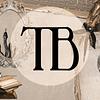You need to sign in or sign up before continuing.
Take a photo of a barcode or cover
I sped through this one because I wasn’t really enjoying it but was curious to see where it went. And while there were some rewarding passages at the end, I’m still not satisfied. The writing was odd and messy and I feel validated to see exact phrases that baffled me being quoted in other reviews on here.
Even with the confusing prose and repetitive lore strewn throughout, this book definitely delivered in the religious inner conflict department. It simultaneously felt overcooked (religion/metaphors) and half-baked (self-acceptance/reckoning) by the end. The author was so young when she wrote it though, I’m sure her later works include more on her journey after leaving her church.
Even with the confusing prose and repetitive lore strewn throughout, this book definitely delivered in the religious inner conflict department. It simultaneously felt overcooked (religion/metaphors) and half-baked (self-acceptance/reckoning) by the end. The author was so young when she wrote it though, I’m sure her later works include more on her journey after leaving her church.
Plot or Character Driven:
Character
Strong character development:
Yes
Loveable characters:
Yes
Diverse cast of characters:
No
emotional
reflective
sad
tense
slow-paced
Plot or Character Driven:
Character
Strong character development:
Yes
Loveable characters:
Yes
Diverse cast of characters:
Yes
challenging
emotional
funny
reflective
sad
medium-paced
Plot or Character Driven:
Character
Strong character development:
Yes
Loveable characters:
Complicated
Diverse cast of characters:
Yes
Flaws of characters a main focus:
Yes
emotional
funny
reflective
medium-paced
Plot or Character Driven:
Character
Strong character development:
Yes
Loveable characters:
Complicated
Diverse cast of characters:
Yes
Flaws of characters a main focus:
Complicated
Graphic: Homophobia
ngl thought the blurb was false advertising, hoped to be install for a happy ending but not really. an interesting take on religion and homosexuality though, felt very raw in an age in which people are generally more accepting. Also, love is like an octopus. I stand by that.
reflective
slow-paced
Plot or Character Driven:
Character
Strong character development:
Complicated
Loveable characters:
Complicated
Diverse cast of characters:
Complicated
Flaws of characters a main focus:
Yes
Romanzo semi autobiografico pubblicato nel 1985 e arrivato in Italia nel 1999, “Non ci sono solo le arance” ha come protagonista Jeanette – una bambina adottata da una famiglia di evangelisti pentecostali nella provincia inglese.
Il padre adottivo è un personaggio talmente secondario che viene citato ben poche volte, mentre la madre adottiva di Jeanette risulta un personaggio centrale nella formazione della bambina; tra messe, catechismi, riunioni della comunità e racconti sulle vicende bibliche e sulla vita dei missionari in Africa, Jeanette sviluppa una sorta di vocazione avvallata anche dagli entusiasmi materni. Vuole diventare anche lei missionaria, si sente scelta da Dio.
Questo finché, in adolescenza, Jeanette non scopre di amare le donne e come questa sua particolarità sia malvista dalla comunità a cui pensava di appartenere.
Il conflitto con la madre e con la comunità religiosa divampa, fino ad arrivare all’esorcismo di Jeanette e della sua ragazza – quest’ultima rinnega la relazione, si sposa con un uomo e in seguito fa figli – e all’allontanamento di Jeanette dalla comunità.
Non so come mai (forse perché non sono cresciuta in una famiglia religiosa e omofoba) questo romanzo non mi ha molto colpito. Leggerlo è stato sicuramente un’esperienza – si può sentire il conflitto interiore di Jeanette nel sentirsi etichettare come “sbagliata” quando lei non si sente affatto tale solo perché ama persone del suo stesso sesso – ma a tratti è stato un romanzo anche un po’ lagnoso e in quei punti ho fatto davvero fatica a proseguire la lettura.
A questo punto credo di avere un grande problema con i romanzi definiti “di formazione” perché per ora non ne ho apprezzato davvero neanche uno tra quelli che ho letto.
Il padre adottivo è un personaggio talmente secondario che viene citato ben poche volte, mentre la madre adottiva di Jeanette risulta un personaggio centrale nella formazione della bambina; tra messe, catechismi, riunioni della comunità e racconti sulle vicende bibliche e sulla vita dei missionari in Africa, Jeanette sviluppa una sorta di vocazione avvallata anche dagli entusiasmi materni. Vuole diventare anche lei missionaria, si sente scelta da Dio.
Questo finché, in adolescenza, Jeanette non scopre di amare le donne e come questa sua particolarità sia malvista dalla comunità a cui pensava di appartenere.
Il conflitto con la madre e con la comunità religiosa divampa, fino ad arrivare all’esorcismo di Jeanette e della sua ragazza – quest’ultima rinnega la relazione, si sposa con un uomo e in seguito fa figli – e all’allontanamento di Jeanette dalla comunità.
Non so come mai (forse perché non sono cresciuta in una famiglia religiosa e omofoba) questo romanzo non mi ha molto colpito. Leggerlo è stato sicuramente un’esperienza – si può sentire il conflitto interiore di Jeanette nel sentirsi etichettare come “sbagliata” quando lei non si sente affatto tale solo perché ama persone del suo stesso sesso – ma a tratti è stato un romanzo anche un po’ lagnoso e in quei punti ho fatto davvero fatica a proseguire la lettura.
A questo punto credo di avere un grande problema con i romanzi definiti “di formazione” perché per ora non ne ho apprezzato davvero neanche uno tra quelli che ho letto.
funny
hopeful
inspiring
reflective
medium-paced
Plot or Character Driven:
Character
Strong character development:
Yes
Loveable characters:
Yes
Diverse cast of characters:
Complicated
Flaws of characters a main focus:
Yes
challenging
reflective
sad
medium-paced
Plot or Character Driven:
A mix
Strong character development:
Yes
Loveable characters:
Complicated
Diverse cast of characters:
No
Flaws of characters a main focus:
Complicated




